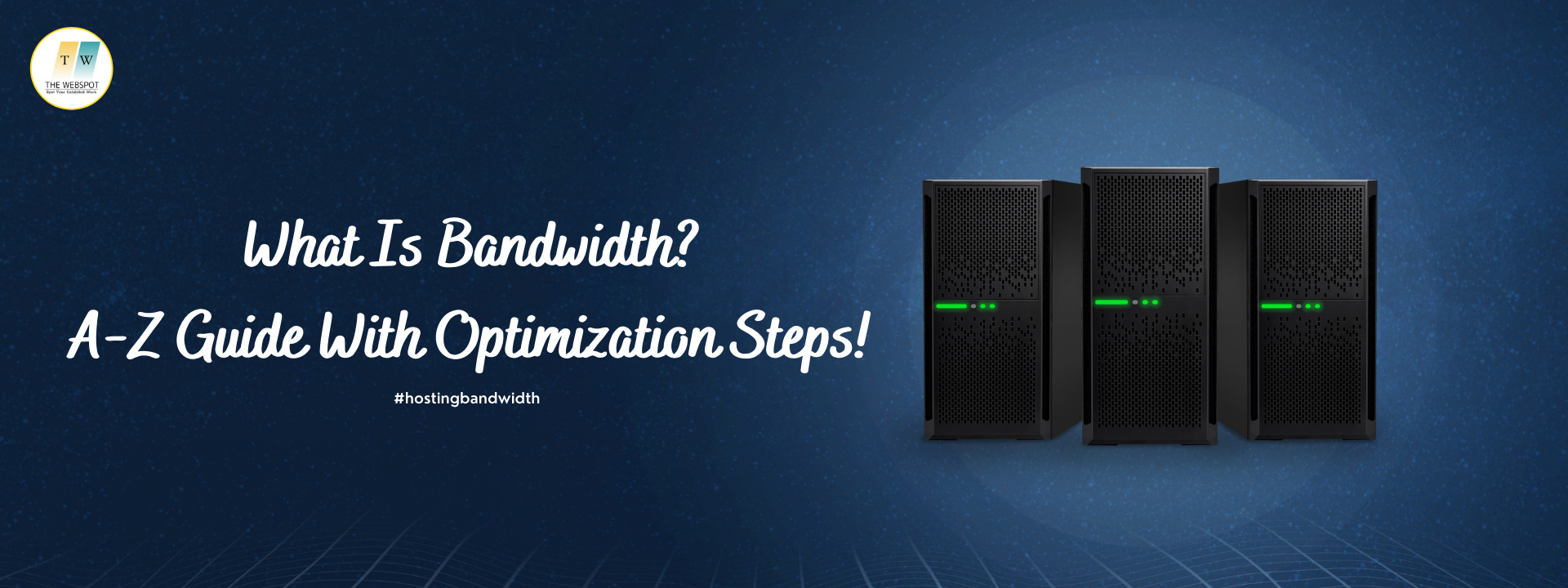What Is Bandwidth? A-Z Guide With Optimization Steps!
Read Me

TheWebSpot@admin
March 13, 2022
Most Recent Articles
- Artsy – Tattoo Studio Elementor Template Kit February 23, 2025
- Best Mailing Software for Educational Institutes: Streamline Communication and Boost Engagement January 14, 2025
- Medicare – Doctor, Medical & Healthcare WordPress Theme October 30, 2024
- WeTravel – Travel and Tourism Template Kit | Elementor Template October 30, 2024
- ArchBuro – Architecture Bureau Template Kit – Elementor Template October 30, 2024
Data transfer speed has become a more vital part of a healthy website. As a known fact, bandwidth is also the primary factor that affects the load time of your website. So, what is bandwidth in Web Hosting? How much bandwidth do you need and how to know how to optimize it?
Well, in this article, you will get all your answers.
What is bandwidth?
Bandwidth is the amount of data your website can transfer to your users in a given amount of time. It’s important to have enough bandwidth to ensure your website doesn’t crash.
In simple terms, it is the size of a living room. If the bandwidth is high, more people can occupy the space(traffic) and you can add more furniture(videos, files, pages, and more). If the bandwidth is low, people won’t have sufficient space and you can’t add more furniture(files).
If you add more files, the bandwidth will reduce and users will start exiting your websites!! That’s why it is recommended to have a better bandwidth that is suitable for your website.
Bandwidth Vs Traffic
Bandwidth is a vague term that is often confused with “traffic”, but it’s the opposite. Bandwidth determines the limits of how much data a website can transfer to a user in a certain time period.
For example, if your website has lots of graphics and streaming video, you require high bandwidth to handle the data transfer to your user.
If your website fails to meet the bandwidth requirements, your hosting provider may throttle your site, resulting in a slower user experience.
How can you determine the bandwidth for you?
You can simply find the bandwidth with the hosting plan you choose with any Web Hosting service. With HostGator, the bandwidth is,
and with Hostinger, the bandwidth is,
Your bandwidth depends on the number of visitors on your site and the number of pages that your visitors look at.
If your website is entirely new and you don’t have several contents uploaded, there is no need to worry about the bandwidth. You can check the cheapest option with Hostinger or HostGator.
You can select your bandwidth based on the number of estimated visits per month and the number of files or pages that you are going to add!
You can select your bandwidth based on the number of estimated visits per month and the number of files or pages that you are going to add!
Then what about unlimited bandwidth?
To be honest with you, there is no such unlimited bandwidth. But you can also see top web hosting providers offering unlimited bandwidth.
How? And why?
It is because, in general, sites built on shared servers won’t use up the available bandwidth. Unlimited bandwidth sounds like the deal of a lifetime but you need to keep in mind that there are limitations on how much of the server’s CPU your site can use.
What this means, is that after your site starts receiving more server traffic than it can handle, your site will slow down as the CPU usage reaches about 90%.
What happens when you exceed your bandwidth?
It depends on your hosting provider. Sometimes, they will give you a warning, and sometimes they will suspend your account.
Sometimes hosting providers also charge hefty amounts for exceeding their monthly limits. You may have a nasty surprise on your next month’s bill if you exceed the limits!
Another way is, simply auto-upgrade your plan to the plan that offers more bandwidth.
Is it possible to reduce bandwidth?
Yes, there is always a solution!
The best way is to reduce the file size! Instead of uploading direct videos, upload them on YouTube or Vimeo and embed the links.
You can use plugins to compress lazy loading images. If you have tried possible methods and still struggling with low bandwidth, you can just upgrade your plan or shift to cloud hosting, VPS, or dedicated hosting instead of shared hosting.
With either HostGator or Hostinger, you can get your preferred package with suitable bandwidth for your business.